Don’t tell me the pandemic hasn’t sparked the inner Gordon Ramsay inside of you. I, someone who’s not particularly renowned for their cooking abilities, have tried making at least two things from scratch, a marble cake and quiche Lorraine. Don’t ask me how it went but the fact that there’s no photographic evidence remaining speaks volumes.
I wonder how different my baby steps in cooking would have been if I'd known some know-how things, like working the oven or chopping those shallots. But thankfully, the dear chefs of Reddit have gathered for one noble purpose—to help us, miserable souls, to feel confident in the kitchen. And not just nibbling on the fresh cuts of a dish in process, but actually being in the middle of the whole cooking action.
So when someone asked “what’s one rule of cooking amateurs need to know?” the answers flooded in with some of the most useful, relatable and ‘where was I before’ tips and tricks. Get your notebooks ready and scroll down to see some really good advice.

#1
Smell is very similar to taste, and if you're not sure about combining various spices, open the bottles and smell them all together.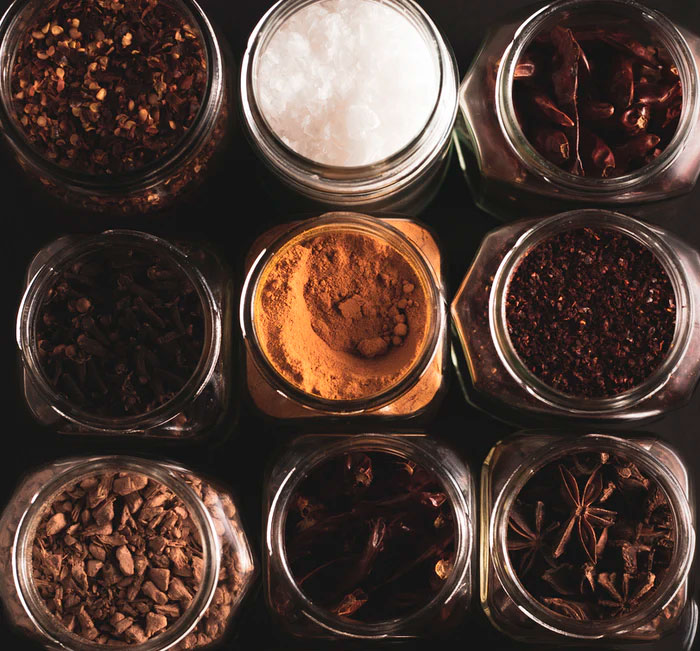
Image credits: SuddenSenseOfSonder
While most of us only experience the joys of cooking in the comfort of our homes, for some, it’s something they do for a living. As you probably have seen on Gordon Ramsay’s TV shows, the restaurant industry is one hell of an industry where drama can fire up any moment. So we reached out to a Redditor IndigoHatter, who is an avid member of the r/Cooking subreddit, and they shared some very interesting insights about cooking, cooks, restaurants and all the misconceptions that we have about them.
#2
A lot of the time when people add salt to a dish because they think it tastes flat, what it really needs is an acid like lemon juice or vinegar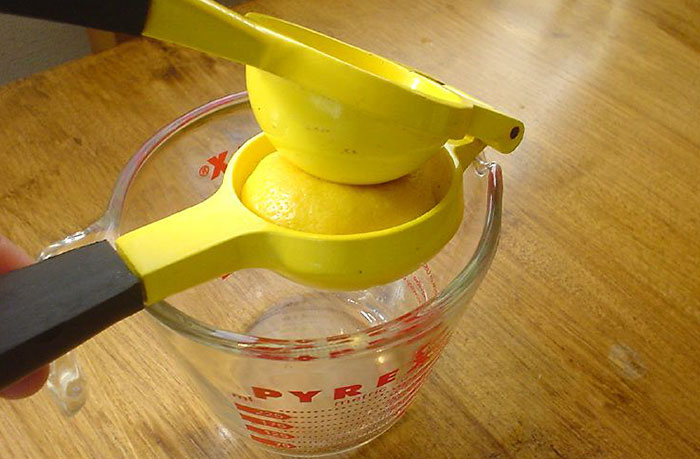
Image credits: Vexvertigo
#3
Not really a cooking tip, but a law of the kitchen: A falling knife has no handle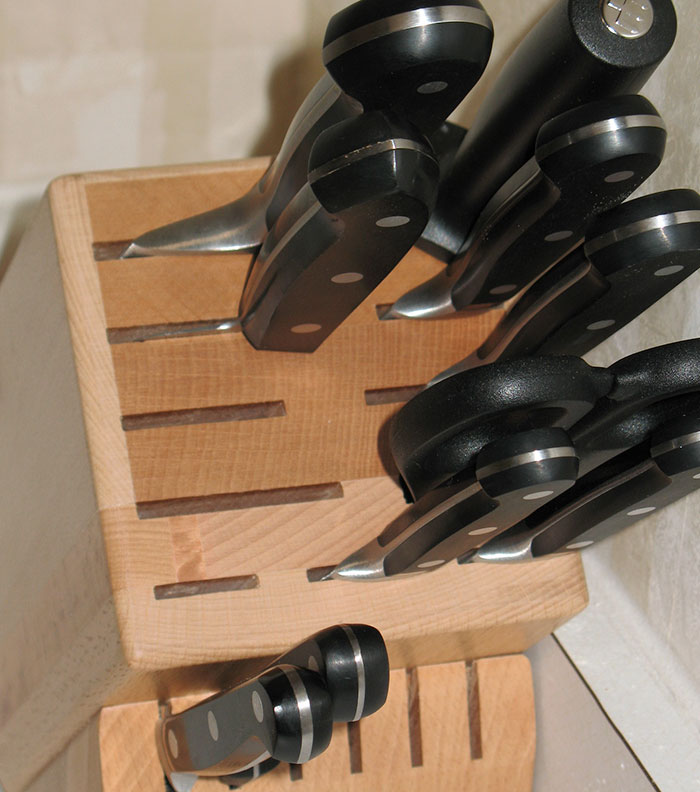
Image credits: wooddog
Whoever has mastered a carrot cake at home and won the hearts of their family members shouldn’t expect to become an award-winning chef. “People think if they are great cooks at home, they'll be great cooks in the kitchen. Similarly, people think that great restaurant cooks are also great home cooks,” IndigoHatter said, adding that it’s not true.
“The skills do have some overlap, but working in a restaurant means making the same thing over and over, so you're more like an assembly worker. Cooks are taught how to cook something, but this doesn't mean they have the skill to make that same thing at home.”
#4
You can always add, but you cannot take away.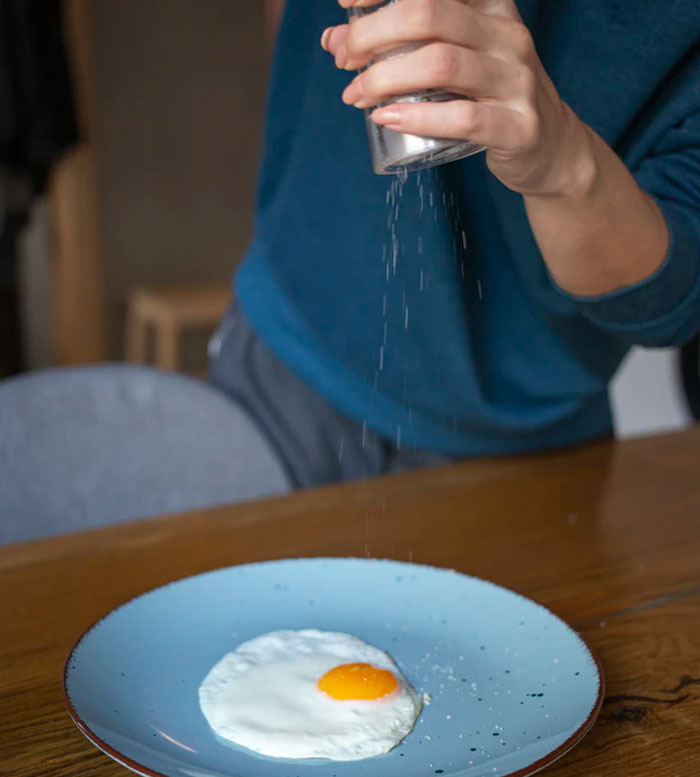
Image credits: El_Duende666
#5
Clean as you go! Done with the cutting board? Wash it or put it away before you move on to the next step. A clean kitchen makes your life way easier.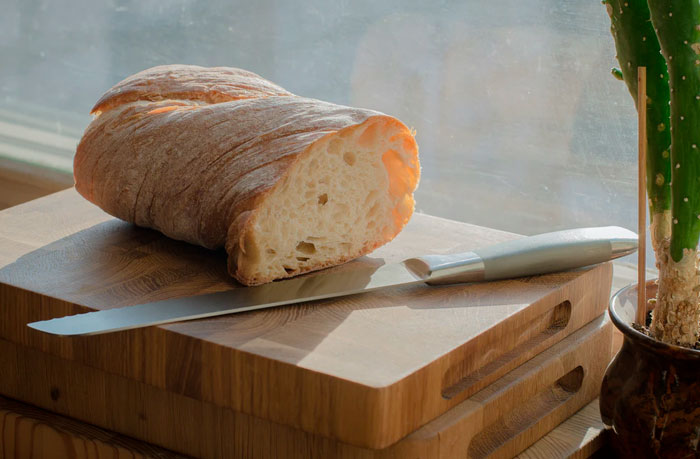
Image credits: heyeve
#6
When you grab a pair of tongs, click them a few times to make sure they are tongs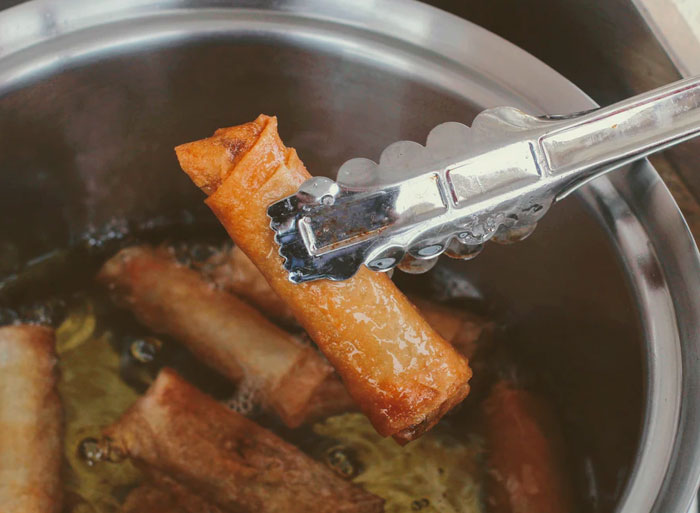
Image credits: Kolshdaddy
According to them, the real trick for the cooks is to practice making things correctly when they’re not busy, “so that when you are busy, you execute it without thinking.” Moreover, “While you're busy, you may realize some hacks you can do to make things easier (usually through frustration)... and then you go back and forth between busy and slow days and hone your practice,” IndigoHatter explained.
#7
This one's kind of common sense, but hotter doesn't mean faster - turning your burners up to 10 for everything will just lead to smoke and half-cooked food with a burned exterior.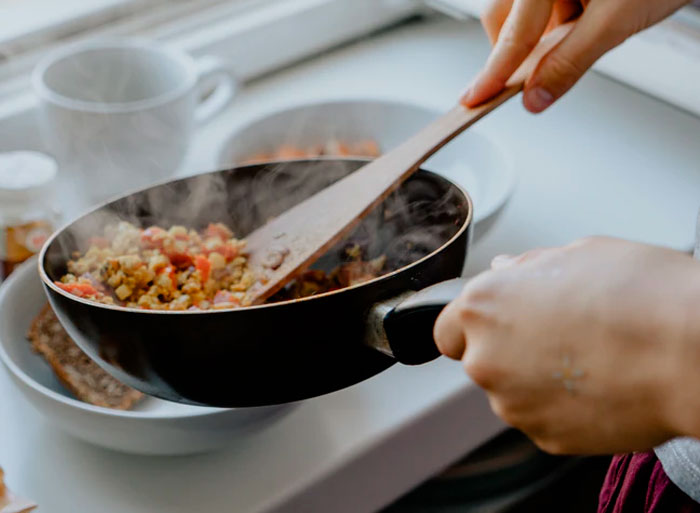
Image credits: blay12
#8
Tie. Your. Hair.I've watched so many people cook and half the time they have their hair loose just flying wherever it chooses. God no, just tie it. Please

Image credits: nellouse1
#9
Taste the food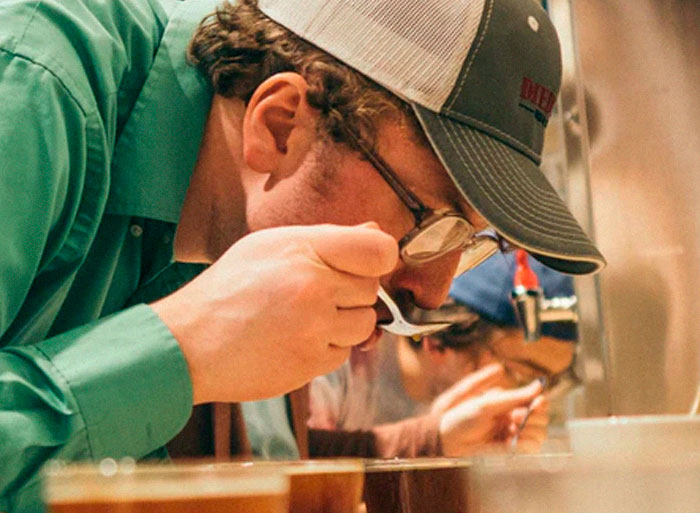
Image credits: OAKRAIDER64
And when it comes to the food in restaurants, it's not always made from scratch like you do it at home. In fact, most things you order in a restaurant are prepped or par-cooked beforehand, depending on the dish and expected pick-up time. “For example, if you order chicken alfredo, the pasta is pre-cooked, as well as the sauce. When the cooks start your order, they will likely begin cooking your chicken and slowly heating up some sauce (unless they're Olive Garden and sell it by the bucket, in which case it's already hot and held like a soup), and heat your pasta in the hot water (only for a minute), before assembling it together.”
#10
After cutting an onion into half, soak in cold water before slicing to avoid tears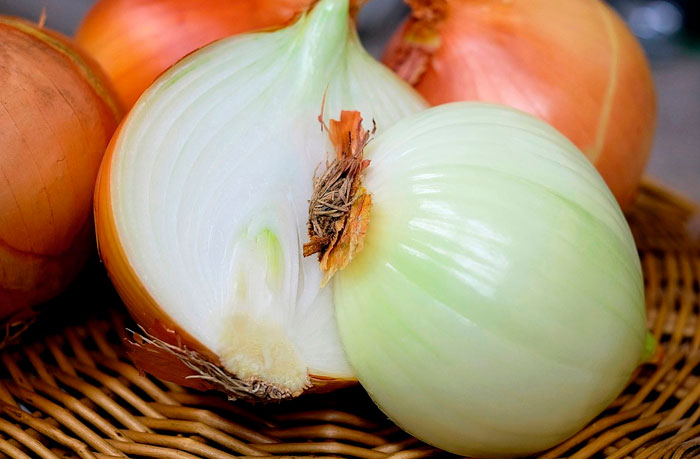
Image credits: McThal
#11
The secret that I was never taught growing up but has made such a huge difference in my cooking is thoroughly drying meat, fish, and veg with paper towel before cooking. My mom’s cooking was always too watery, not crispy or caramelized, because she missed this step, and to be fair, it isn’t mentioned in most recipes.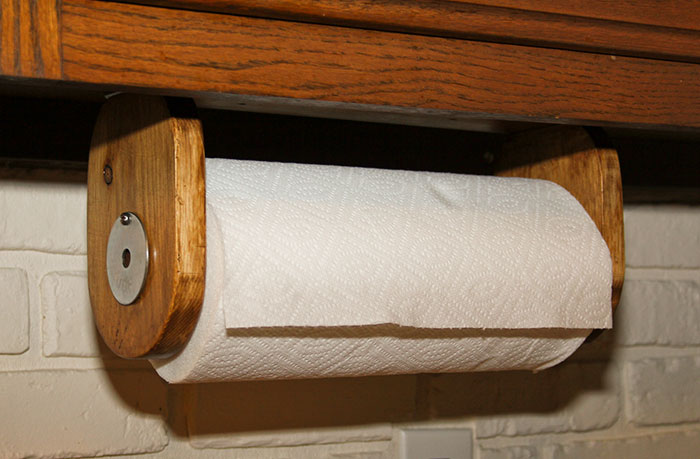
Image credits: half_a_sleep
#12
The amount of garlic flavor is dependent on WHEN you add the garlic. Add it early for light flavor, add it late for bold flavor.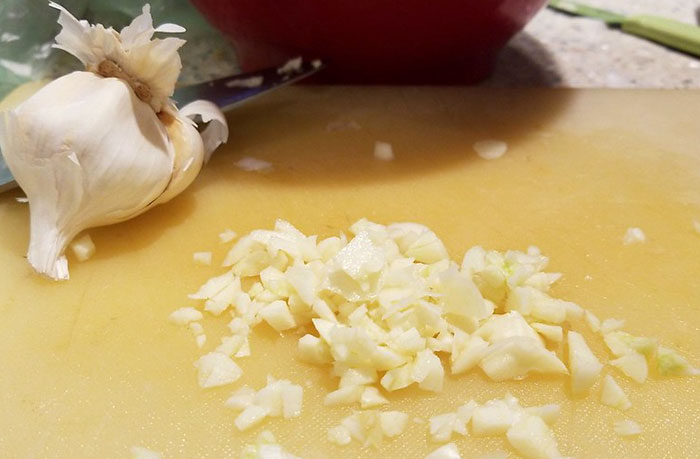
Image credits: Orbnotacus
The Redditor also said that one of the easiest ways to make food taste great is to make it look great. “The first thing you eat with is your eyes, ears, and nose before it ever gets to your mouth. One of the easiest ways to do this is use contrasting colors... it's why so many dishes are sprinkled with parsley!”
They continued: “As for actual flavor... salt, chicken stock, and butter are your main culprits for deliciousness... and sometimes sugar, depending on what we're talking about.”
#13
When a dish calls for a certain amount of wine, it is recommended to consume an equal amount of wine whilst cooking said dish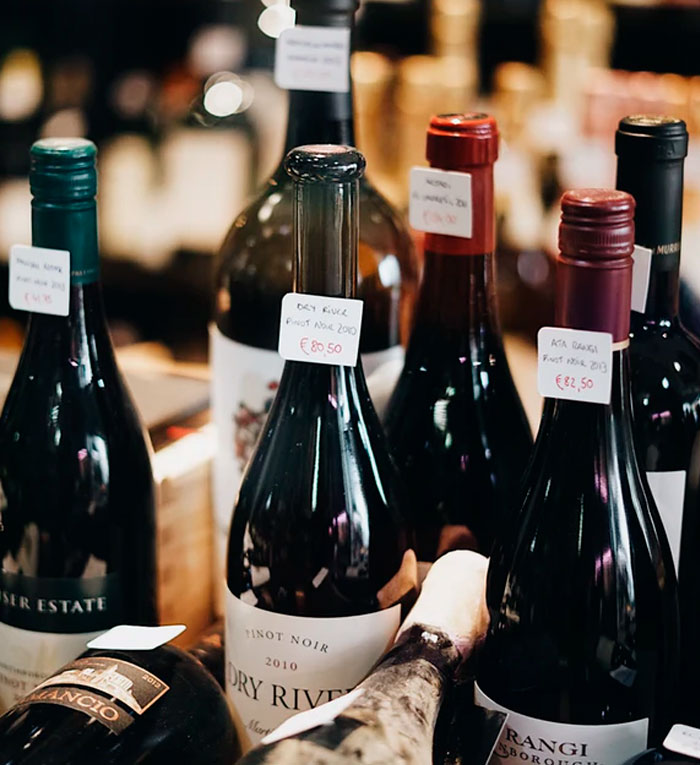
Image credits: promisedjoy
#14
Former executive sous chef for a 3 star restaurant. I have also ran a bunch smaller kitchens during covid.Get good knifes. I recommend Mercer Renaissance as a starter brand. $40 for the 8in Chefs knives, $23 for the 5in utility knife.
Shallots are used extremely often in restaurant kitchens but rarely at home. Use as a substitute for onions for a more mild taste.
Heat pans for 1min before using, use less heat when cooking. Rarely will you ever need to go higher than 75%.
Taste everything possible. Not just your finished product. Taste the spices, salt, pepper, etc all separately before adding them the first time you use it. A lot of people will buy a new spice then immediately add it to their food ruining it.
Knives should be lightly honed before and after each use. Hand wash and dry immediately.
Never attempt to catch anything that's falling. Not just knifes, if you drop a napkin your instinctive response should be to take a step back and put your hands up and out of the way. This trains your brain so you never attempt to catch something dangerous.
Want to make something more like a restaurant? Odds are you need more salt, sugar, or butter. We don't care if the carrots we serve are worse than eating actual candy, we just want you to come back.
Just because you like cooking doesn't mean you will like working at a restaurant. Pay is usually pretty poor unless you work at Michelin star restaurants and it is a hot, high-pressure environment. We lose a lot of people who couldn't handle the pressure of getting yelled at.
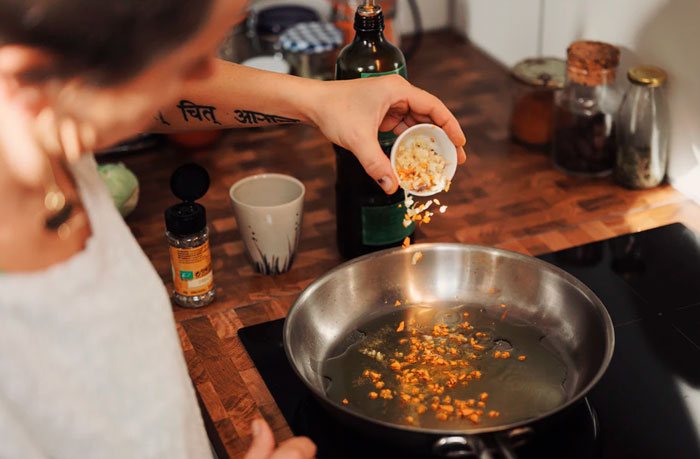
Image credits: Abigail716
#15
Stop cooking with extra virgin olive oil; it is not some 'better' version of olive oil.Extra Virgin has an extremely low smoke point, so cooking with it often leads to burnt food and a smoky kitchen. It is intended for dressing and garnishing. Regular olive oil has a much higher smoke point and is meant for cooking. They are not the same.
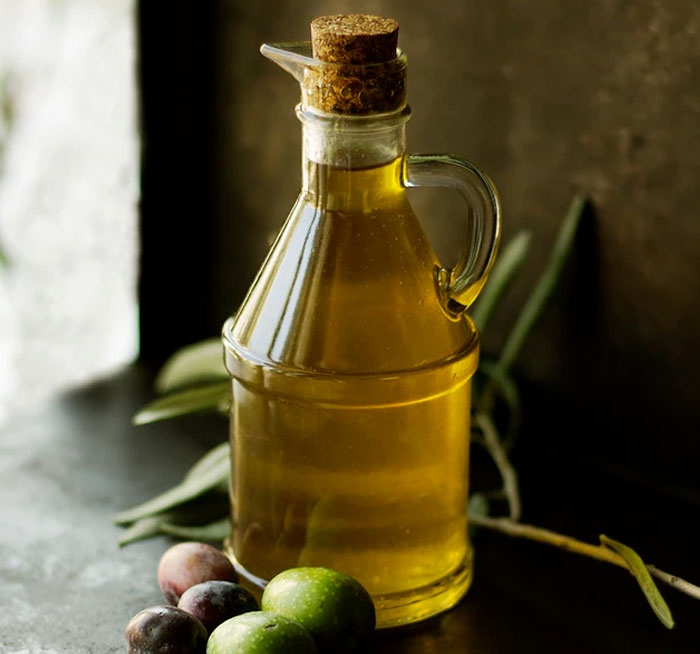
Image credits: ajcranst
And when it comes to the actual term ‘chef’ that so many of us use, Indigohatter said that it’s not true of every cook. They explained: "'Chef' is French for 'chief,' which stems from the brigade de cuisine, created several hundred years ago. It's largely been deviated from these days, but the spirit and structure still holds true. The original brigade structure is something to marvel over, and some restaurants supposedly use structures like this still... but in my local fine-dining restaurant experience, it's usually just a handful of positions, and even some of these may not be present, depending on how the kitchen is structured.”
“Chef, Sous Chef, Chef de Garde-Manger (tends to be salads and desserts), KM (Kitchen Manager), Line Lead, Cooks. These are the only positions I've ever seen in a restaurant,” they said.
#16
(home cook)Cooking recipe is a suggestion, baking recipe is an instruction.
#17
Salt, pepper and acid will brighten up almost any dish. If an otherwise wonderful dish is just... missing something, add salt, pepper and lemon juice, then reassess.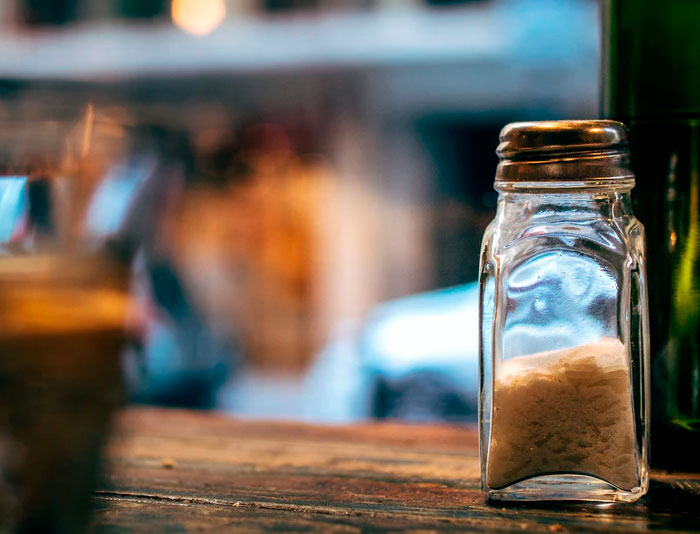
Image credits: LymphomaThr0waway
#18
Don’t use wet towels… learned there the hard way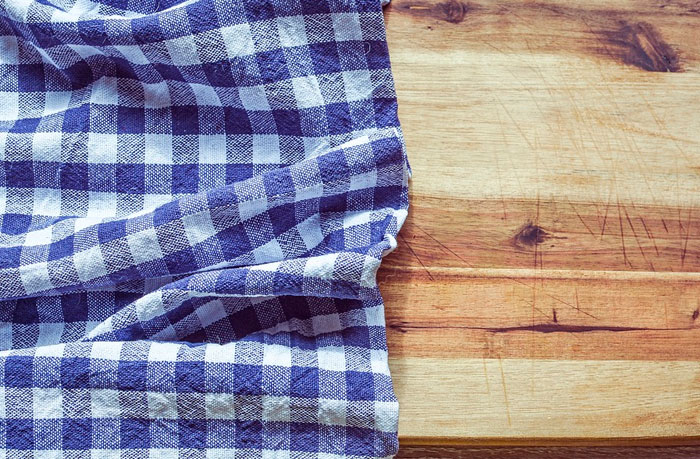
Image credits: redvelvetlookinass
If you still wish to become a good chef one day, there are a set of key skills you wish to strengthen. “To become a good cook, you need to be a hard and fast worker, you need to be clean and organized (this is so important), and you need to be capable of splitting your attention all over the place without losing focus on any of it,” Indigohatter said.
They continued: “You need good knife skills, and you need great discipline (always use a towel to hold a pan handle, because when you're cooking that much, that fast, there's a chance one of the pan handles is hot, and you don't want to drop it).”
“Most importantly, though, you need to be able to follow directions, know how to ask the right questions, and know when and what you can put in your own personal creative spin on things, vs when you need to follow directions to the letter,” they concluded.
#19
Toasting dry spices in a sautee pan can really bring out the flavor of the spices. Don't put bbq sauce on until the end of cooking meat. The sugar in the bbq sauce can cause the meat to burn and char.#20
Tell people you're behind them when cooking is involved.BEHIND!!!!
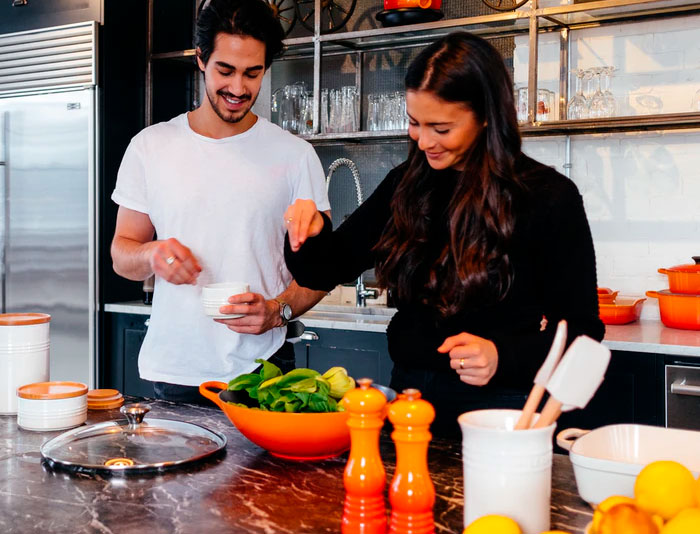
Image credits: ToddFatherXCII
#21
Never ever EVER throw water on a grease fireDon’t try moving it either. Turn off the heat, place a lid on it or smother it with baking soda, if you don’t have a fire extinguisher.
Also, consider buying a fire extinguisher if you don’t already have one.
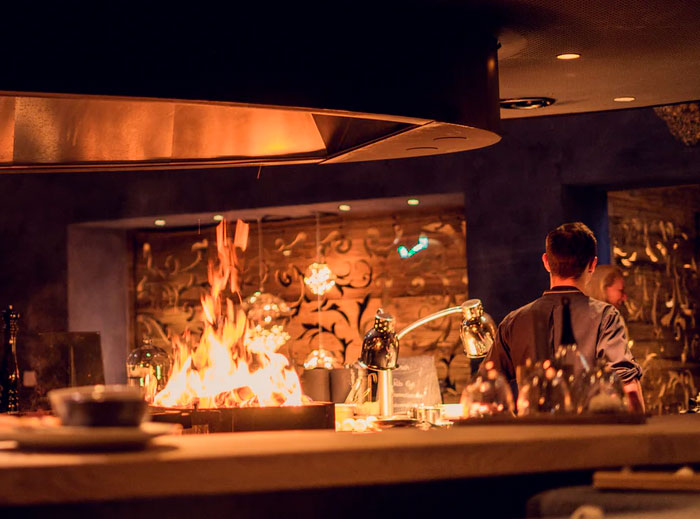
Image credits: chris_the_earthenoid
#22
Pre heat your pan, its a simple trick but it will improve your cookinga small amount of oil will go a long long way
when you take steak or pork or lamb off of the heat or out of the oven, always give it time to rest, usually half the amount of time you cooked them, and i tend to loosely cover them in tinfoil
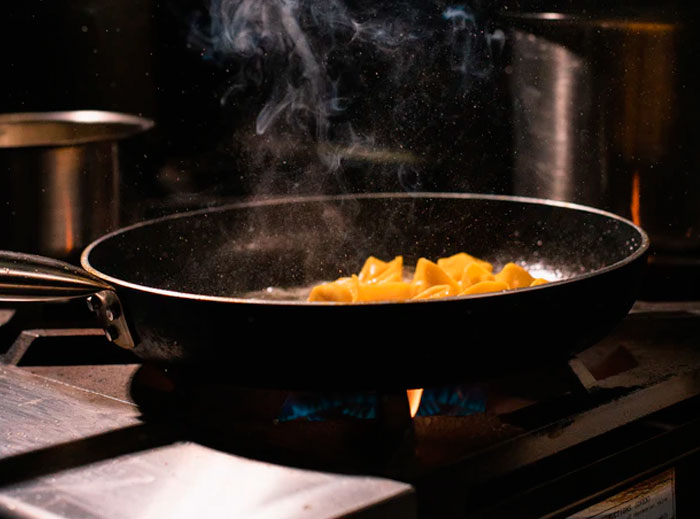
Image credits: Empty-Refrigerator
#23
Always salt your pasta water!#24
Never fry, saute etc nude.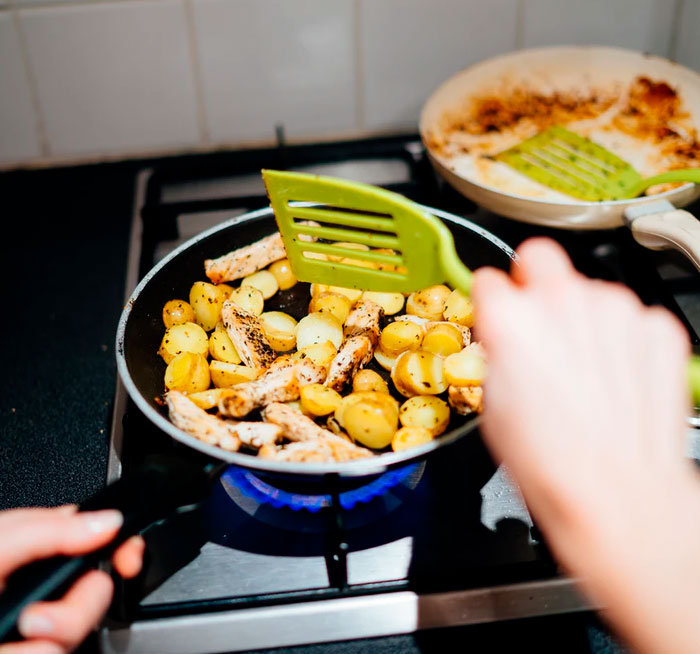
Image credits: Phil0sophic
#25
Cooking is art, baking is science.#26
Don't choose this as a career if you want a social life.I've seen so many talented people drop the job because they don't get to spend time with their friends and family. People plan gatherings and parties at the times restaurants are busiest, so you could end up cooking for the people you know but not getting to interact with them
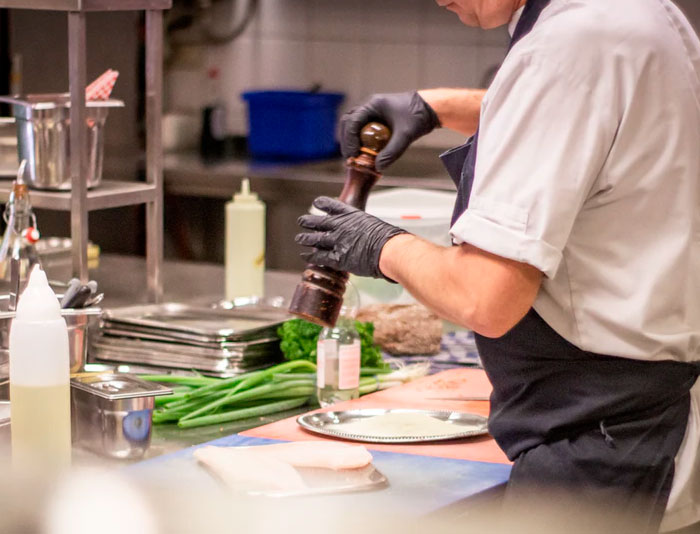
Image credits: votemarvel
#27
If a recipe says 2 gloves of garlic it means 5#28
Not a chef, but no sharps left in the sink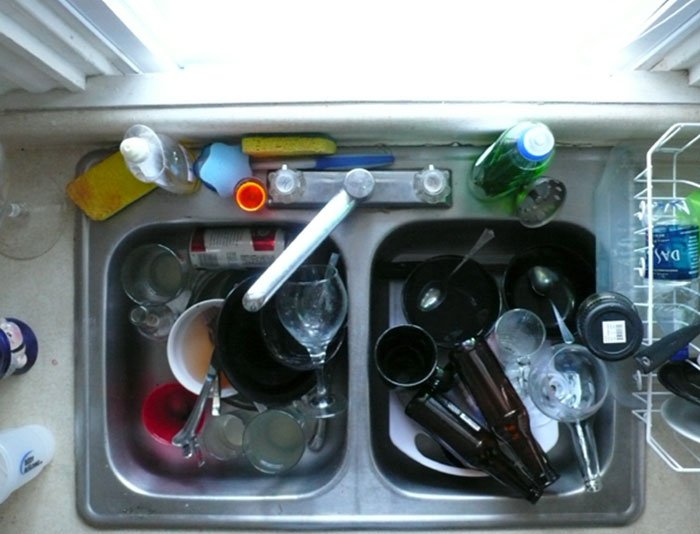
Image credits: waterloograd
#29
If you're using a steel/hone on a blade, ALWAYS RUN THE BLADE THROUGH A FOLDED UP PAPER TOWEL A FEW TIMES AFTERWARDS! If you don't, there are small steel particles that cling to the blade that can and WILL come off in the next thing you cut.#30
Not a chef but I'm having a beer with one. I posed this question to him and he said. "You know the knob on the stove that makes the fire come out? There's a whole range of settings between off and all the way on. Temperature control. grabs my shoulder Temperature... control."#31
Not a chef but avid bbq smoker. LET YOUR MEAT REST AFTER COOKING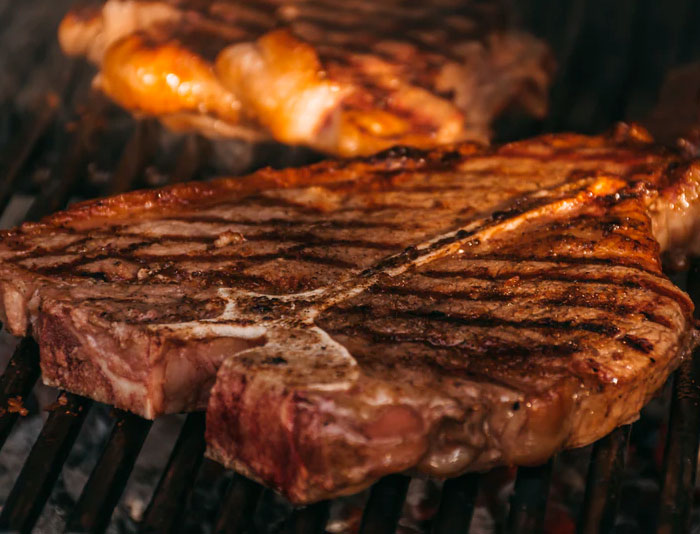
Image credits: Leave_it_to_stupid ·
#32
you’re just going to enjoy cooking more if you have a SHARP knife. No clue how people can hack away at veggies and meat. No reason to go insane either, a $30 Victorinox and $5 sharpener will get you a very long way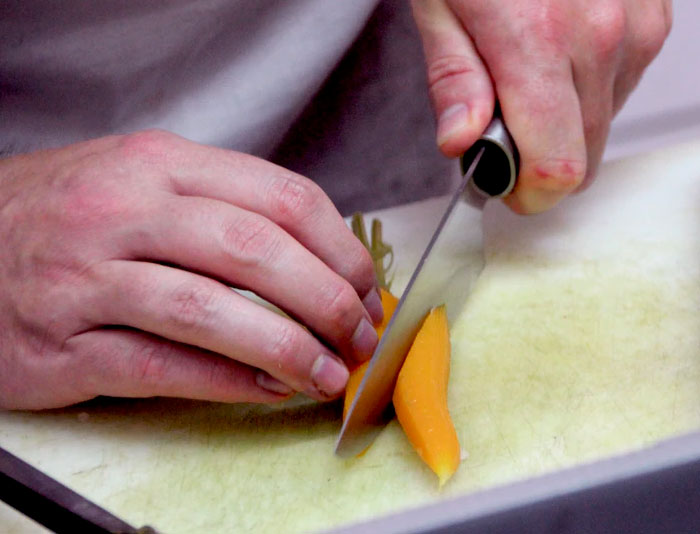
Image credits: friendbuddyguypal
#33
Hot metal looks the same as cold metal.#34
wash your hands#35
The digital meat thermometer is hands down the best $10 I ever spent. It has a temperature alert setting that takes the guesswork out of when to take something out of the oven. The only time I have had dry poultry in the last five years or so is when I go to someone's house to eat that doesn't use one. 90% of people suck at Thanksgiving turkey#36
For thick and nice sauces, use the water you cook your pasta with.#37
If you like custardy scrambles (and let's be honest, who doesn't?) this technique is for you. Add your beaten eggs to a cold pan with a few pats of butter and slowly begin cooking them, stirring often. As the pan gets hot, take it off the heat and continue stirring the eggs. Then place it back on the heat and repeat so the pot never gets too hot. This low-and-slow technique will result in a super creamy texture that's almost like a custard#38
Do you ever wonder how restaurants get their sauces so shiny and rich? It's because they finish them with a few pats of cold butter before serving them. Next time you're making a sauce, try adding a few slices of cold butter at the very end to add richness and shine.#39
If you plan on using juice from limes, oranges or lemons, roll them around pushing on them (not too hard) before cutting them.#40
If you’re getting annoyed because it’s taking you too long to peel garlic, place an unpeeled garlic clove under the flat side of your kitchen knife and press on it with your hand. The garlic peel will separate easily and your garlic will be crushed#41
Mise en place. It's French for "putting in place" or something like that. It means before you start the actual cooking, get everything you'll need for the whole recipe out on the counter, do all your prep work (measuring amounts, chopping onions, peeling potatoes, seasoning meat, greasing pans, whatever the recipe says), and put it all within arm's reach of where you'll be cooking. As you become more experienced, you'll get a feel for what can wait to be done during down time mid-cooking, but even then mise is just less of a hassle.Don't rely on a single recipe. If you want to try to make something you had at a restaurant and google "chicken alla whatever", don't just randomly pick one of the results to try. Read a few of them and cook the one that comes closest to being the average of all the others. Way too many internet recipes aren't actually tested by their authors, and professionals are actually worse than amateurs about it--they're used to eyeballing measurements because they know what the right amount looks like and when they write it down it's all guesswork.
Fat, salt, sour, bitter. If it's bland, add some fat. If it's still bland, add some salt. If it's still bland, add some vinegar or lemon juice. If it's still bland, add some herbs and spices or green vegetables. This is even something you can do late in the cooking process to fix a recipe that's turning out boring--just remember that a little goes a long way. Also there are magic ingredients that combine several of these at once! For example: olive oil is very fatty and slightly bitter, cheese is very fatty, moderately salty, and slightly sour, soy sauce is very salty and slightly bitter, citrus zest is very bitter and moderately sour.
Measure by weight, not volume. This is more for baking than cooking. Baking is very sensitive to small changes in the ratio of different ingredients, and you'll have a lot easier time getting it right if you use a scale. Flour is especially problematic. If you scoop up a cup of freshly sifted flour and level it off, so you have exactly a cup, then spend a couple of minutes lightly tapping it on the countertop and shaking it from side to side, it'll settle and pack more tightly and the exact same amount of flour will only take up three quarters of a cup. Don't play that game, just weigh it and be done. If a recipe says one cup of flour, use 130 grams. Bonus: weighing stuff means you don't have to wash a bunch of funny-shaped measuring cups and spoons.
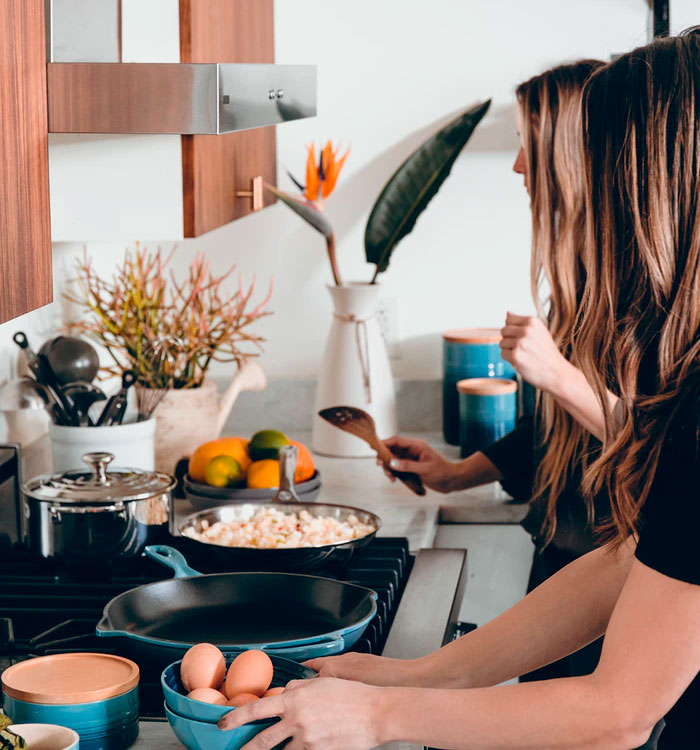
Image credits: howlingfrog
#42
Patience, planning, and good organization.Patience/planning: Brine your chicken. Let the rice dry before you make fried rice. Slow cook your meats. Overall the actual time you invest is about the same but it requires some foresight. Don’t expect to just grab a chicken breast out of freezer and be able to make a delicious meal in 20 minutes. A lot of the best dishes take some time to let the flavors do their work.
Organization: It’s a lot more enjoyable when you can focus on cooking instead of digging around for things you need or clearing space on your counter. Have a good set of glass Tupperware to save leftovers. Get stackable matching cookware that’s easy to manage and store. Ziplock bags are great too. These things pay for themselves in giving you general sanity and making it more likely you will consume your leftovers and always have things in their place.
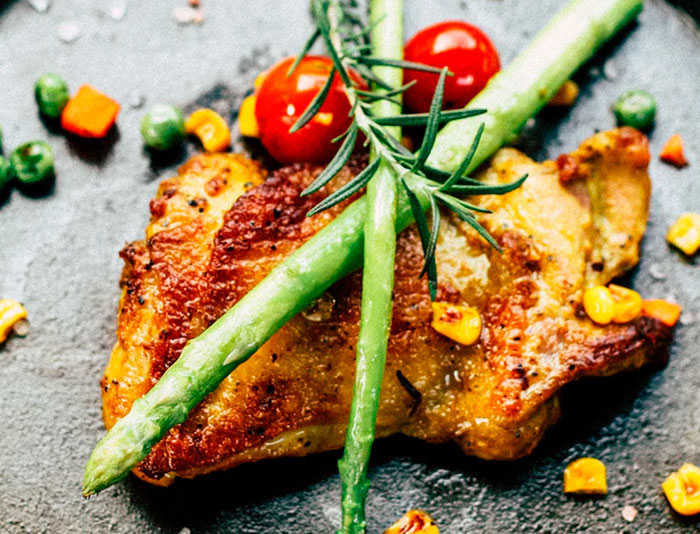
Image credits: RelativeOk578
#43
Really think about what size you're cutting your vegetables in relation to cook time. It's better to have a perfectly cooked larger vegetable that you have to use fork and knife a bit to eat at the table than a bunch of overcooked, mushy bite sized pieces. Generally speaking, the best simple preparation of cooking a vegetable is usually roasted on a sheet pan with olive oil, S&P.And for god's sakes, make your own salad dressings fresh. It takes no time, you likely have what you already need in your pantry and it tastes 10x as good as the crap in the bottle. You'll be surprised even how much better Ranch dressing tastes if you get the dry seasoning packets and mix it with some fresh milk and mayo and let it set for 30 minutes in the refrigerator.
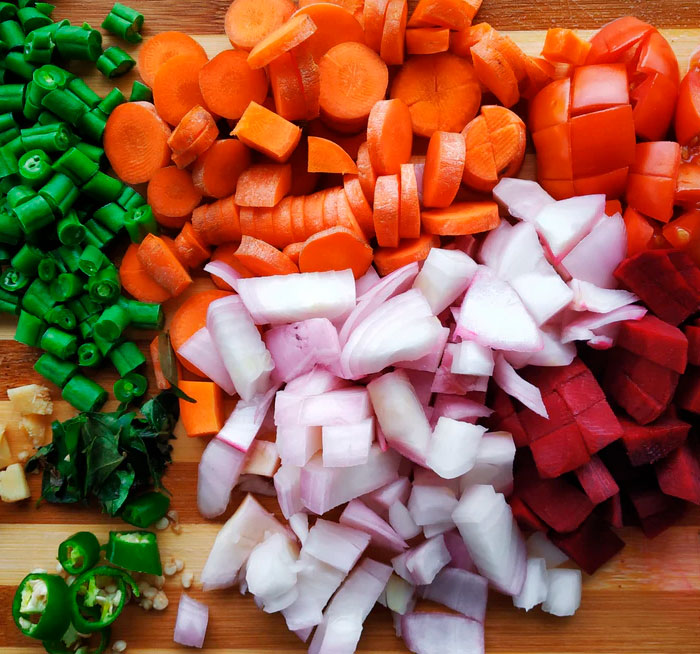
Image credits: JasonK87919
#44
You don’t need to buy pre-made spice rubs. Look at the ingredients and build a well stocked pantryCelebrity endorsed cookware isn’t always good, a lot of it sucks
Don’t cheap out on knives, buy forged, not stamped.
Store raw meat accordingly, don’t cross contaminate your fridge
Knife magnet strips are better than knife blocks
This is obvious, but never put a cast iron in the dishwasher
Don’t boil the s**t out of potatoes to make mash
Rinse raw rice before cooking
Mise. En. Place.
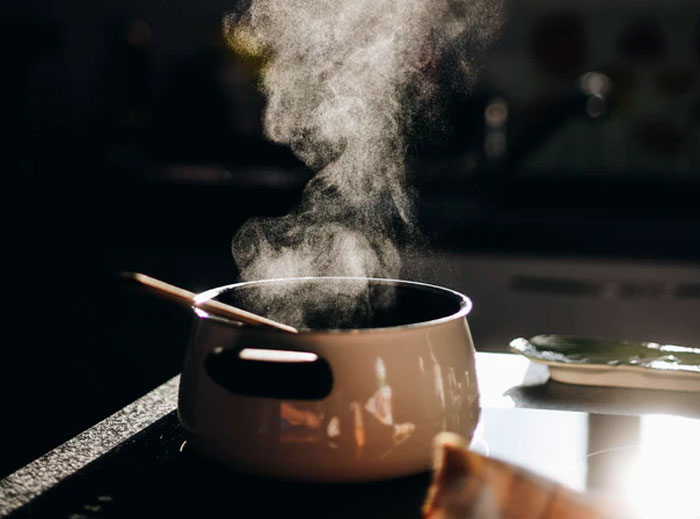
Image credits: guiltycitizen
#45
Never add dry cornstarch to hot liquid#46
plan your next task 2-3 tasks as you're performing your current task. That way you always know what you're moving towards#47
Keep it simple. I see so many young chefs coming into the kitchen fresh out of the classroom going hell for leather to make some strange gels, jellies, dehydrated this and that. Yes it can taste great, but just chill out. Show me if you can make a proper Jus, properly cook a joint of meat, know how to bring the best out of a simple, humble vegetable.Just keep it simple.
#48
Sharp knives are less dangerous than dull knives.#49
Learn how to properly store raw ingredients in a fridge (raw chicken on bottom).Understand times and temps. It's possible to stack times and ingredients so that your food is done at the same time.
Drink heavily and get a neck tattoo of a pig or tomato, or no one will take you seriously.
#50
Not a prof chef- Mashed potatoes… NOT blended potatoes. Don’t ever put potatoes in the blender, it will turn into glueFor anyone wondering the science behind it: potatoes contain a lot of starch. Mashing cooked potatoes gently by hand or with a ricer leaves most of the starch molecules intact. The butter and dairy you add to the mashed potatoes are able to coat each individual particle, making the potatoes creamy.
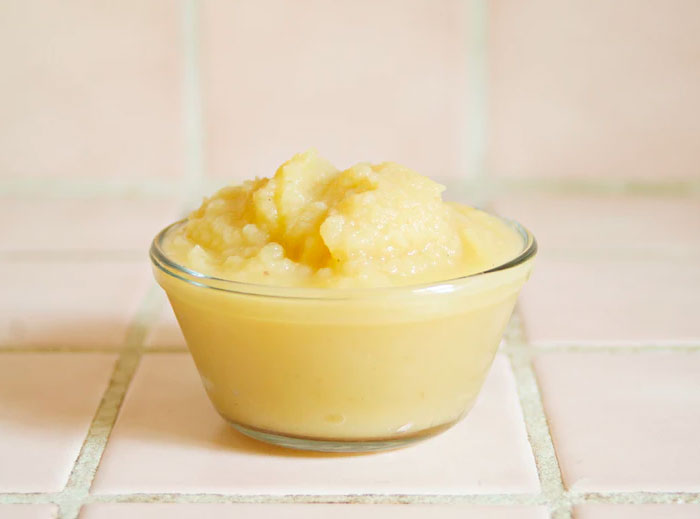
Image credits: goodbye401k
#51
When you take something out of the oven, a pot, pan, skillet, sheet, tray, whatever; drape a towel or oven mitt over the handle/edge of it. That way you or anyone else understands that it’s hot and not to be grabbed bare handed.From a Homecook who has grabbed handles in excess of 400 degrees literally 30 seconds after taking them out of the oven…..more than once
#52
If you’re using powdered garlic or onion, let it bloom by adding it to a little bit of water. You’ll use less and get a more robust flavor.#53
scrambled eggs: low and slow#54
Stay by the stove#55
The answer is always more butter/oil.Season at every step of the recipe.
You're allowed to move protein while it sears; don't let people intimidate you into thinking otherwise.
#56
My one rule is that a knife never goes into the sink. As soon as it’s done it gets washed and put backEdit: my second tip is to learn how to handle a knife, if you need to force it that’s not good. Go watch Joshua weissmans knife skills video.
My third and final tip is to not let accidents get you down, learn from it the next time you cook the dish. Like last time you burnt the shit out of the outside and the inside was underdone, turn down the heat but up on time. Certain things benefit from different heats so just learn and become the judge of it yourself. Get yourself into a rythm with it. And never be afraid to taste as you go, unless you burn your tongue. But it often generally helps.
#57
I've had the great fortune of knowing some pro cooks in my life, and the most memorable piece of advice I've gotten was when there were several of them at my place during a housewarming and they had, of course, taken over the kitchen.One was searing a pork loin and was pissy because I had a liquor dispenser top on my olive oil and just a grinder for salt (no pig). After he ripped the top off the oil and found my box of kosher salt, he explained
"dirtymick, do you know why restaurant food tastes so good?" he asked, while liberally dumping oil and salt on the pork, "It's because we cook like we hate you".
Turns out the best home cooking aide is self loathing.
#58
A tip my mom would often give me:don't go for cheap store-bought cooking wine. buying the real stuff adds much more flavour to the dish.
#59
Culinary school never teaches you to use premade seasoning powders (Knorr stock powder etc) or MSG. It is essential for certain food businesses. By the way MSG reduces the amount of salt you have to use so in a way it is healthy. In Culinary school, MSG is never talked about or used and I ended up having to learn how to use MSG (how much to use in my recipe) when I opened my business#60
Using the finger measurement for rice. Just fill your pot with rice and cover with water so that the tip of your finger is touching the top of the rice and the the water comes to your first knuckle#61
Your pan does not need to be on maximum heat.You have to cook meat to a specific internal temperature to kill bacteria, anything more is just trying it out (generalized).
Lemon zest and garlic with a cream sauce makes anything delicious.
Wash your hands, tools, and area after dealing with raw meats. Watch the water splatter from the sink when washing aswell.
When a recipe calls for you to let something 'sit' or 'rest', do not rush this step. Good things happen to the food in that time.
You are less likely to cut your self with a sharp knife, compared to a dull one.
Sifting flour, when adding it to baking recipes, can improve the results.
Test your yeast before commiting to using it.
When cooking for a group, season lightly, and use hot spices sparringly; they can both be done after its served.
Puree or fine grate veggies such as carrots or zuchinni into sauces, or even peanut butter, to get kids to get some nutrients.
Buy a rice cooker. Uncle Roger said so.
Sanitize, sanitize, sanitize.
Wet hand / dry hand while breading or coating food.
Never pry anything out of an electrical appliance. No metal in toasters or microwaves.
Dishwashers have a 'gunk trap' or general area where stuff collects. Clean this. Also check the water outlets as lemon seeds and other things can clog them.
Herbs and spices can be annoying to eat, such as twiggy pieces of rosemary or peppercorns. Put them in a cheese cloth, or emptied out tea bag, drapped in the liquid, to give their flavours but not the textures.
Dont pan fry bacon in the morning with no shirt on.
Buy local as often as you can.
#62
My time in culinary school was circa 2002-2003, and it was very Franco-centric in its approach. The culinary scene was still pretty traditional, Eurocentric, and male-dominated back then, and I ended up not apprenticing and taking a different (not great) path for awhile. Now I'm getting back into cooking and baking at home, rediscovering my latent talents.I think something to keep in mind is that there's often more than one way to do something well, and that no one cuisine or continent has all of the answers. People cook differently, with different techniques, from one place to the next, creating amazing food. The more you diversify your cuisine knowledge, the better a cook you will become. I've learned from many a YouTube cooking channel that a lot of the old cooking/baking wisdom from school doesn't apply, or it may be okay but there are newer and better ways of doing things.
#63
DON'T RUIN YOUR PANS FOR CHRIST'S SAKE. I've seen so many instances of people talking about how "nonstick doesn't work. It goes away a week after you buy the pans" when in reality they are treating the things like cast iron and using every metal utensil they can find on it.#64
When cooking for others just make it how you would like it, chances are they'll like it. You're probably not great at making food you dislike.#65
I would add duck fat as a tasty alternative to bacon fat for all the same reasons. Excellent for roasted or home fried taters. Slightly expensive and was hard to find but seems to be more readily available the past couple of years.from Bored Panda https://bit.ly/3mKEHVo
via Boredpanda